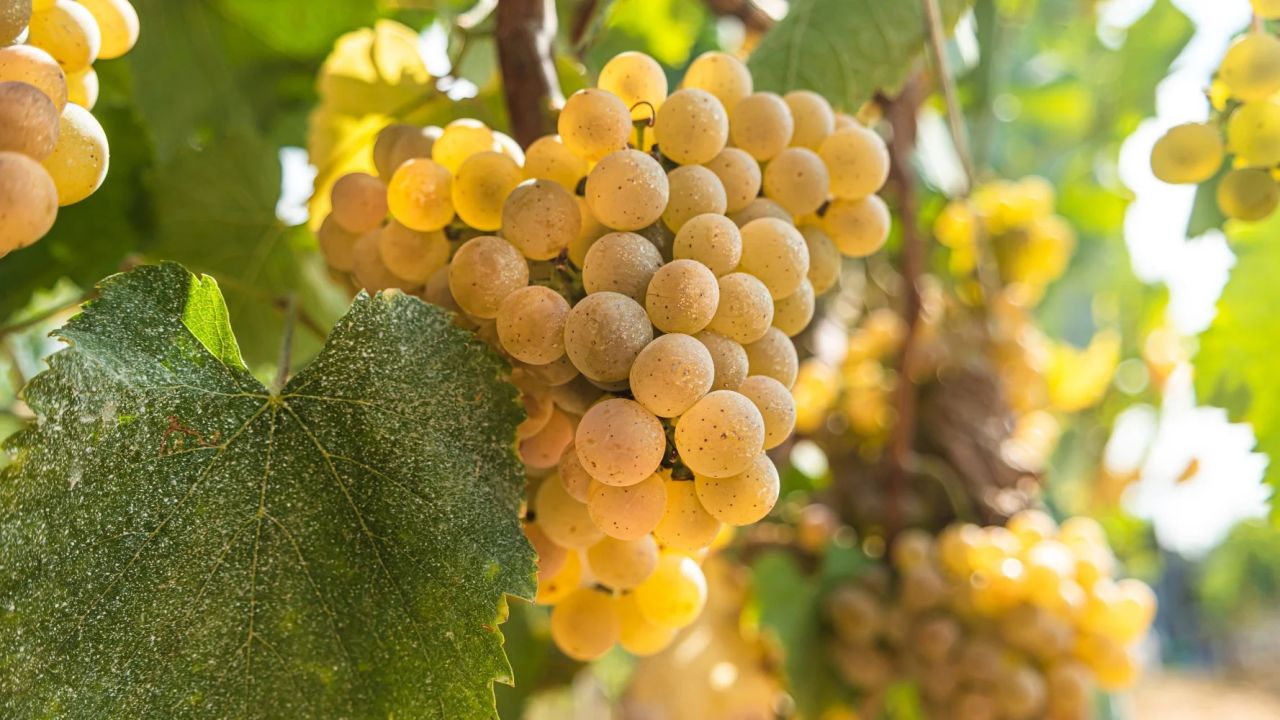
Albarino (ahl-bah-ree-nyoh)
Although it is not clear which side of the border of Portugal or Spain the variety originally descended from, Alvarinho or Albariño is a white wine grape grown in Northwest Portugal (Monção and Melgaço) and Galicia (northwest Spain) where it is also used to make varietal white wines. In Portugal it is known as Alvarinho, and sometimes as Cainho Branco, Albariño is the Spanish name for the grape.
Legend has it being brought to Iberia by monks in the 12th century but recent studies point to it being native to Portugal/Galicia. Its name, derives from albo < albus, meaning "white, whitish". It has locally been thought to be a Riesling clone originating from Alsace (France), although the earliest known records of Riesling as a grape variety date from the 15th century.
It enjoys great popularity in Spain, especially in Rias Baixas. The terroir there comprises of predominantly granite soils and oceanic climate (Atlantic Ocean), with wet winters and sea fog. In general rainfall is high and the temperatures mild, rarely exceeding 30 °C in summer and only dropping to 0 °C in December and January.
A very productive grape, it can give a variety of wines from everyday enjoyable crisp refreshing whites to more refined and flavourful expressions. Light and zesty, with hints of exotic and stone fruit and a marine minerality is typical of the variety. A high proportion of skin and pips to flesh, gives it intense aromatic profiles and often, bitterness, that can be combated with greater ripeness.
Usually Albarino is found in varietal wines and in Portugal it is a basic component of the famous Vinho Verde wine. Drinks remarkably well on its own, but in pairing with food is where it shines. Raw seafood, deep fried tapas and grilled white flesh fish are some of its favourite partners.


